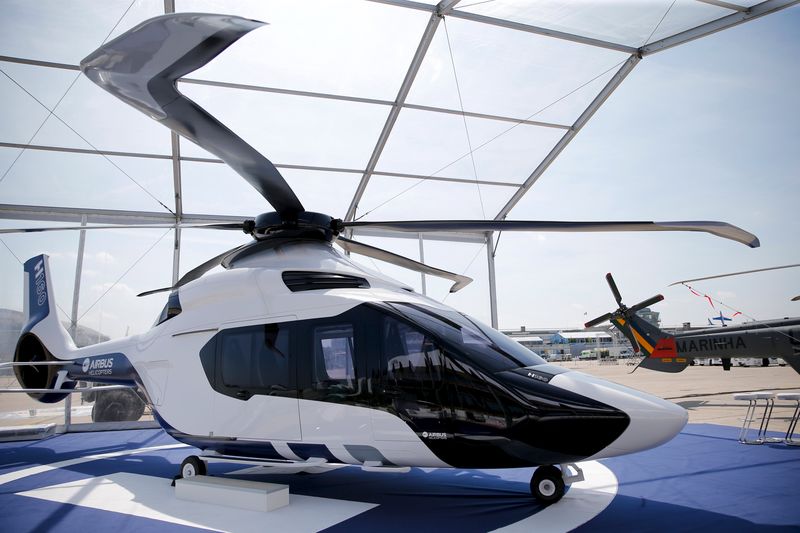This post was originally published on this site
https://i-invdn-com.investing.com/trkd-images/LYNXMPEHAC07U_L.jpg
DUBAI (Reuters) – Airbus shaved its forecast for airplane demand by 0.5% compared with pre-pandemic projections on Saturday, offset by a brighter outlook for freighters as the world’s largest jetmakers fight for inaugural sales of large new cargo planes.
Airbus issued new long-term demand forecasts on the eve of the Dubai Airshow, where a battered aviation industry is reeling from the loss of two years’ growth to COVID-19, while striving to defend its environmental plans amid growing climate pressure.
Airbus said it expected a market total of 39,020 jetliner deliveries in the next 20 years, fractionally lower than the 39,213 it predicted two years ago in its last rolling forecast.
The estimate for small planes like the best-selling A320 was essentially flat at 29,690 units, but the outlook for big jets that traditionally dominate the region fell 3.1%, reflecting a drop in long-haul travel on top of a glut of such aircraft.
The view echoes that of Boeing (NYSE:BA) which in September cut its 20-year delivery forecast by 1% compared to 2019. That tempered greater pessimism seen from Boeing as the crisis peaked in 2020.
Airbus issued slightly weaker forecasts for medium jets – a key battleground that includes its longest-range narrrow-body jet, the A321XLR. Its sales have been causing a headache for Boeing at the top end of its recently troubled 737 MAX range.
Airbus slashed its forecast for average annual growth in passenger traffic to 3.9% from 4.3% in pre-pandemic 2019.
“The fastest traffic growth will be in Asia with domestic China becoming the largest market,” Airbus said, indicating a permanent shift after China briefly grabbed the top spot in domestic air traffic from the United States during COVID.
Airbus raised its 20-year delivery forecast for new freighters by 2.9% to 880 units. It is in talks to find a first buyer for a proposed A350 freighter with airlines including Singapore Airlines (OTC:SINGY), industry sources said.
Boeing said earlier it is in advanced discussions with potential buyers for a new 777X freighter. Market sources have said main contenders include Qatar Airways and FedEx (NYSE:FDX).
Airbus said a rising share of total airplane deliveries would be to replace jets already in the market rather than to facilitate the recently curbed growth plans of many airlines.
That emphasis reflects expectations that airlines will retire less efficient jets earlier following COVID-19, but also// aims to tackle a sensitive point for the industry as some environmental groups target what they see as over-expansion.
Faster retirements also worry suppliers and lessors who fear the average economic life of jets will fall, forcing them to miss out on service revenues or push up depreciation costs.
“As economies and air transport mature, we see demand increasingly driven by replacement rather than growth,” Airbus Chief Commercial Officer Christian Scherer said in a statement.

